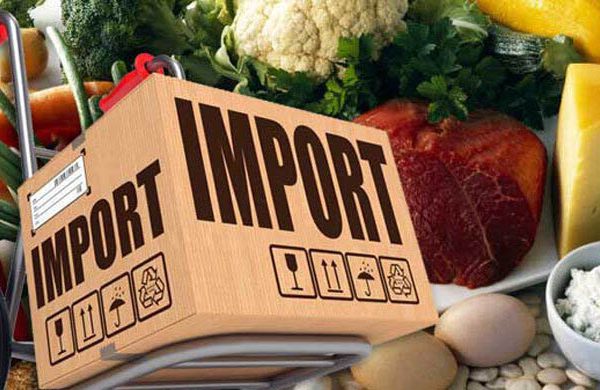Risk-based reforms could cut food import delays by 80pc: Study
- Update Time : Sunday, June 15, 2025

TDS Desk:
The average clearance time for food and agricultural imports in Bangladesh could be slashed by up to 80 per cent through targeted risk-management reforms, a new study has found.
It said that quick release of such products would not only reduce port congestion but also ease prices for consumers in the domestic market.
Currently, agro-based containers are subject to 100 per cent customs inspection as per the Import Policy Order, regardless of the type, nature, or risk profile of the products.
The study, titled “Quantifying the Benefits of Risk-Based Clearance for Imported Food and Agriculture Products in Bangladesh”, was conducted under the USDA-funded Bangladesh Trade Facilitation (BTF) project and released recently.
Risk-based approaches can help reduce market prices of several food items, including milk powder, apples, and oranges.
Bangladesh has witnessed a sharp hike in food import expenditure, which surged from US$4.7 billion in 2014 to $11.85 billion in 2022.
During this period, the number of bills of entry (B/E) processed by customs more than tripled.
Despite this growth, the country continues to rely on a rigid clearance system that mandates 100 per cent inspection and testing of all food consignments, irrespective of their risk level.
“This blanket approach, applied without consideration of factors such as importer credibility, country of origin, or product type, has led to significant delays in the clearance process,” the study report says.
Analyzing seven food products, the study highlighted three critical areas for reform: policy and regulatory change, process improvements, and capacity building and awareness.
The products covered in the study include milk powder, fortified soybean oil, ketchup, chilled and frozen fish, apples, oranges, and animal feed ingredients.
“Overall, the average release time increased in 2024 to 7.1 days, up from 6.54 days in 2023. Notably, fortified soybean oil experienced a significant rise in clearance time, by nearly three days, suggesting the need for better handling and inspection processes,” it said.
The report recommends amending the Import Policy Order and other relevant acts and rules to incorporate risk-based clearance procedures in line with international best practices.
Michael J. Parr, Chief of Party of the USDA-funded BTF Project, said the study aims to support evidence-based reforms that improve efficiency, transparency, and predictability in food and agricultural imports.
Currently, he noted, Bangladesh heavily relies on blanket inspection and testing of all consignments regardless of risk.
“Our goal is to provide empirical data showing how risk-based clearance, an internationally recognised best practice, can help Bangladesh optimise resources, reduce delays, and better target high-risk shipments,” Parr said.
“The findings clearly show that structured risk management can cut clearance times by up to 80 per cent and significantly lower retail prices for consumers,” he added.
He hopes the findings will guide government agencies in updating procedures to adopt risk-based clearance methods, align with global standards, and meet obligations under the WTO Trade Facilitation Agreement.
Mohammad Borhan E-Sultan, President of the Bangladesh Foodstuff Importers & Suppliers Association (BAFISA), said obtaining clearance from BSTI and other agencies can take up to a month after import, often costing importers more than Tk 1.0 million per container in port demurrage and shipping charges. “Usually, consumers have to shoulder the additional costs due to the escalation of import expenditures,” he added.
He also pointed out that clearance-issuing agencies remain closed two days a week, while ports operate 24/7, making fast responses impossible after shipments arrive.
Nipun Chakma, Deputy Commissioner of Customs and Technical Advisor (Risk Management) at the USDA-BTF Project, said applying risk management methods across all relevant cross-border agencies would expedite agricultural goods clearance without compromising national health and security priorities.
He noted that faster, more predictable, and transparent procedures would improve the overall trade environment.
“This enhanced trade environment is likely to attract both local and foreign investors, especially as lengthy and unpredictable clearance processes have long been a concern for international businesses operating in Bangladesh,” he added.
Under current Import Policy Order obligations, every food and agro-based container must be certified by the Bangladesh Standards and Testing Institution (BSTI) and undergo plant quarantine procedures, even if sourced from compliant exporters.
Customs officials and importers argue that requiring time-consuming test reports for food products from reputed companies with no history of substandard shipments is unjustified.
Earlier, New Zealand raised concerns over the prolonged testing of imported powdered milk in Bangladesh, despite the country’s strict radiation safety compliance.
Bangladesh imports food and agro-based items from long-standing partner countries, but every container still undergoes testing, causing delays and adding costs that trickle down to consumers.
The study recommended establishing institutional coordination mechanisms for risk management between regulatory bodies, particularly between customs and other government agencies (OGAs).
Currently, there is no structured risk management approach applied by any agency other than customs during the clearance process.


















